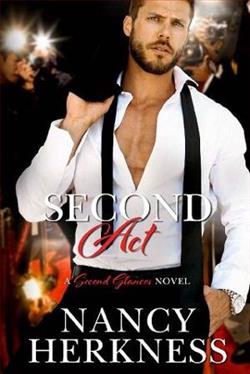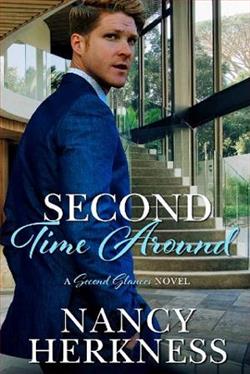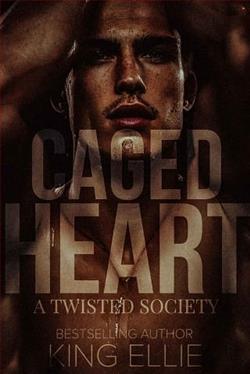Page 106 of The Enduring Universe
“I remember vestiges,” he said, his fingertips flickering on his cheeks as if he could recapture the images. “Memories of memories, too shaded to make any sense. I questioned what happened to Ecstatics in their last life, those who united and subsumed their yakshas, but I think I understand now. In Nidhirv’s time, they reunited with their yakshas freely, and society was in balance. It was bred into their philosophy to attain that universal form, and I think their capital desires had been one thing and one thing alone, wrought by their culture. Their capital desirewasfor unity, nothing beyond that, a fulfillment that occurred when they found their yakshas, instantaneously. I don’t know for sure, I am disconnected from my past lives now, but I think for them unity and subsummation with their yakshas happened together. Their combined desire wasreborn back into the universe, the same way they would bring the Virohi into birth, and the body of both yakshas and architects would nourish the soil in a voluntary act of death. The true meaning and purpose of an ashram. To return to the fold, to the universe’s embrace.”
Ahilya imagined it, as if she were seeing all this in one of those ancient architect records like a picture. An architect looking up at the sky. A universe wheeling above, stars and light brightening, but behind it the energy of that immense consciousness, breathing the same breath as the architects.
“To do such a thing,” she breathed. “We have experienced it now too, but to think such a thing commonplace…” It brought tears to her eyes. How much had been lost and forgotten.
“They had tremendous power back then,” Iravan said. “You know the kinds of trajection they could do, things we could never do in our airborne ashrams—do you remember we saw amazing trajection back in those first carvings within the habitat? I never understood how much power they had then, but trajection is a matter of will, and their will, their consciousness, their culture, was more unified than ours. Nidhirv was a being of great power, all architects back then had been. We were not, so when all of you became Cohesion, your mind unified by it, a single strengthened thing, you—Ahilya—mimicked what the early architects always did. Though you separated from Cohesion, you found the strength to fold your consciousness into the universe, all in the pursuit of knowing yourself, evolving and freeing yourself. The Virohi used this event to finally achieve that which they were meant to do from the very start.”
“The early architects did it unto death, though,” she murmured. “We didn’t die.”
“You almost did,” Iravan said, reminding her quietly. “Andsome parts of you did. Something must always die for there to be a new birth.”
Ahilya looked to the city, and the remnants of the vriksh. The tree was gone now, ruptured from the outside, still slowly withering into ash. The vriksh had protected her. It had completed her. Containing all of humanity, it had cushioned her from everything that had threatened to take her under, reminding her that people and their memories were fleeting, but this shared tradition—this immense, beautiful, shared experience—was still hers to tap into.
She and Iravan had changed their culture and their species irrevocably. Birth and death had always been central to their lives, but how far they had taken it. From their arguments for a child, to the one they had almost borne, to this—a step taken for all of them.
She still felt the cadence with the rest of humanity, the accord of movement, the harmony of thought. Each of them their own person, but moving in synchronization. Perhaps the withering of the tree was a gift. To take with them into the world what the tree contained inside. The past was gone. Maybe in this changed world, there was comfort in that.
“Then the Virohi are in the universe now,” she said softly. “The Virohiarethe universe now.”
“Yes.”
“But then—” A horrible thought struck her, as she recalled the worst of what she had been. The worse of what humanity had been. “Their infection, and our hatred—did we harm—did we contaminate—” The words slipped from her. She couldn’t complete her thought, horrified.
Iravan shook his head. “Infinity absorbing infinity,” he said softly. “You didn’t harm the universe. You could not.”
It was perhaps deeply arrogant and presumptuous that she should think thatshe, this small insignificant thing, could hurt the universe,but Iravan did not laugh at her. He took her hand in his, interlacing their fingers, and squeezed. “Take comfort,” he said softly. “They did this back in Nidhirv’s time too. This was the purpose of an ashram. You did not change it. You returned the cosmic creatures to their home. Manav knew it, I think.Awakening occurs beyond time, he wrote in his poetry. He must have known of this true purpose of an Ecstatic. The Moment is repaired, or perhaps gone altogether, submerged into that ocean of awareness. I can’t know, but I don’t sense it anymore, neither that nor the Deepness. I think it is a sign—architects don’t need to sense it anymore, much like the complete beings, because we don’t need to manipulate those realms anymore toward our own unity. We have achieved that unity, and now birth and rebirth will occur as they always have. Human beings will continue to reincarnate. We will all of us finally be well and truly complete.”
Iravan had spoken of Manav’s poetry before, and she had her own memories of it, from a time she had held Bharavi’s book. She could feel his wonder in his words, this man who had worried about Bharavi’s rebirth too. If all he said was true, then she would be born again, this time with no need to traject or seek her yaksha, but complete, right from birth.
Balance is an unheard rhythm, Ahilya thought, remembering.We continue to live, in undying separate illusions.She had seen that poetry back when Bharavi’s book had been in her care. Iravan had studied it, mentioned the lines to her long ago too, when they’d been trying to work together in Nakshar to save Nakshar. She understood now finally what the words meant. Manav had lamented the separation of people—of architects, non-architects, of all consciousness from the consciousness of the universe. Yet people were not divorced anymore from themselves and each other. Cohesion had come to an end, but their minds had aligned in amazing ways, human finally in all their humanity. Perhaps Manav had survived the planetrage.If so, she would go to him. She would tell him they’d won. Perhaps he would be proud.
“Do you think Manav could have imagined all of this would occur?” she asked softly.
Iravan sighed deeply. “He could not have. So much of this occurred because of one slip, one monumental choice. But Manav is—has always been—more complicated than any of us could guess. He came to my rescue through his yakshas twice, and I imagined him to have more than one yaksha, but I never could imagine why. I think I understand now. Manav sought freedom from his capital desire too—a desire that had imprisoned him for lifetimes. It was that which split his yaksha into two in the first place, perhaps in a lifetime lived long ago. Instead of fulfilling one desire, he found a way to break the desire down. Architects have been defined by our need to control the world, but Manav tried to simply understand. I wish to be like that myself dearly.”
“We lost so much knowledge,” she said. “Because for some reason, they outlawed Ecstasy long ago. Because they upset that balance, and stopped returning to the universe what they had taken. If things had only gone that way, Manav would never have had to split his capital desire. The cosmic creatures would never have unleashed such destruction.”
“They outlawed Ecstasy because of me,” Iravan said. “Because of me and Manav, in a way. It was Nidhirv and Vishwam who envisioned a path of divergence first, away from the culture of their ashram. They could not have known where it would lead, and perhaps they were not the only people to think this way, perhaps there were other pressures of the time too. But the change occurred because of a marriage Manav and I shared once.” His voice trembled, and tears filled his eyes. “It is a knowledge that will haunt me for the rest of my days.”
Ahilya stared at him, shocked. To think that Manav had been associated with Iravan through lifetimes. To think that they had followed each other through so many cycles of consciousness. “If Manav is Vishwam reborn,” she said in a low voice. “Does it mean you two were destined to be together?”
She could hear her own distress, but Iravan’s hand clutched hers tighter.
“No,” he whispered. “No, that’s not how birth and rebirth work. Bharavi studied these things, as did Manav, as did I. Once in a different time, Nidhirv and Vishwam were married, they were lovers, they made vows—strong vows to each other, as strong as the ones you and I did. And perhaps Vishwam’s desire to find Nidhirv was so great, carving such a deep imprint into Vishwam’s own consciousness, that it resembled a capital desire. It is what led his future incarnations to always hover around Nidhirv’s consciousness. Around my consciousness. That is why he protected me—one half of him wishing for freedom from everything, the other half compelled to keep me safe. It does not mean that Manav and I were destined for each other, only that we shared a past. Manav had a family, sons and daughter, and he was very much in love with his spouse. Vishwam—from another life—could not be allowed to dictate that. The dead should not be allowed to hold the living hostage.” Iravan breathed in deeply. “It is another thing I have learned, no longer a hostage to my own capital desire. We are free, Ahilya. We are free.”
The explanation reverberated in Ahilya’s mind for long seconds. She squeezed his hand, and he returned the gesture, then the both of them fell still again.
“We’ve woken to a strange world,” she whispered finally.
“One rich with possibility again,” he answered, and she knew what he meant. Everdust had once been depleted, and with it possibility had left the world, but everdust had come into being when twohalves became a whole. Not the half of yakshas and architects like they’d imagined before, but that of the Virohi and the universe. She’d worked this out herself in the last few minutes.
“We had it wrong,” she said, nodding. “The architects who built the habitat, they didn’t just stop the earthrages and trap the Virohi in the Moment. They must have released the Virohi into the universe. That is how they created everdust.”
“Yes,” Iravan said, sighing. “I think so too. That is why I never found another cosmic creature trapped in the Moment other than the one that you and I trapped. Those ancient architects and citizens understood and remembered what so many generations before them didn’t. Perhaps they used a similar method to Cohesion. Everdust has returned to our world now, though we cannot use it. Trajection is finally over.”
A strange emotion lurked underneath his words. Ahilya wondered if it was regret—he could have done so much with the manipulation of possibility—but Iravan’s face was relaxed. His other palm curved protectively around whatever he was holding. The blade of stone around his neck was missing. He’d likely used it in his repair of the Moment.
“You said your past lives are cut off from you,” she said. “Then is the falcon gone?”















